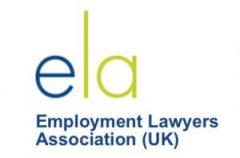If a couple can’t agree on financial matters when getting a divorce, one of them can apply to the Court for a legally binding financial order; this is called Financial Remedy proceedings. It is important that both sides are honest so that a fair financial settlement can be reached that doesn’t disadvantage either party.
As part of this process, both parties must complete an official form that is provided to the Court with full details of their financial situation. This includes details of their income, any property or land they own, bank and saving accounts, investments, life insurance policies, business assets, pensions, state benefits, cash sums and individual belongings worth over £500.
They will also have to outline any debts and their income needs for themselves and any children being provided for by them. This document is called a Form E and is then viewed by the other side and their legal team.
Hiding money the during divorce process
On occasion, one or both sides may try to ‘hide’ cash or assets during the divorce process, thereby breaking the legal requirement of ‘full and frank disclosure’. This is often the case where there is an imbalance in the management or generation of wealth in a relationship, and one party is considered to be the ‘main breadwinner’.
Common methods to try and hide assets in a divorce include transferring money to other accounts or family members, creating non-existent debts or invoices, undervaluing assets or business interests, putting money in trusts, offshore accounts, not declaring digital assets such as cryptocurrency, withdrawing cash…the list goes on.
Tools to unearth and stop financial deception in divorce
Those who try and hide the truth about their financial situation during the divorce process should be aware that even if their soon-to-be ex-spouse doesn’t see the signs of deception, experienced Family Law solicitors can often spot the red flags that the other side isn’t being completely honest. They can also call on the assistance of forensic accountants to investigate, who are experts in analysing complex financial structures.
If one side can demonstrate a reasonable belief that the other person is about to dispose of assets, a solicitor can apply to the Court for an order to prevent a person from concluding the financial transaction or have money or assets to be moved back if they have already been transferred. Orders can be used if there is evidence that a former partner plans to destroy documents to hide their assets.
Solicitors can also ask the Court to grant a non-party disclosure order if the documents in question are likely to support the case and disclosure is considered important to reaching a fair, equitable financial settlement. These orders can enable them to obtain information directly from banks, employers, HMRC, business associates, trustees and the Land Registry.
This can make a messy situation even longer, more complex and costly.
The penalties for hiding assets in divorce
There are serious consequences for deliberately trying to hide money or assets during a divorce. If caught, the deceiving party may be made to pay the legal bill for both sides or may receive a less favourable financial settlement than they would have been awarded otherwise. If the fraud is extreme, it could be classed as perjury or contempt of Court, which is a criminal offence and can be punished by a fine and/or imprisonment.
It is important to note that there is no time limitation, so if one party suddenly seems to be enjoying wealth that was not disclosed at the time of the divorce, the Court can reopen the case and change a financial order providing that there is clear evidence of non-disclosure.
How we can help
We always encourage our clients to provide complete financial transparency, as this is the least stressful, quickest and most amicable way to try and reach a financial settlement during divorce.
We aim to achieve the best possible result for our clients and settle finance issues without the need to go to Court but where this is not possible, we have a successful track record in taking tough action in Court proceedings.
If you suspect that your spouse may be concealing assets from you, or organising their disposal, you ought to seek legal advice as quickly as possible. Our Family Law team will help you uncover the truth and fight to ensure a fair outcome.
For a confidential discussion about the divorce procedure, please contact Richard Rodway in our Henley office on T: 01491 570 900, office or Julia Drury, Sophie Perry or Ruby Tufail in our Reading office on T: 0118 975 6622, all of whom will be happy to have an initial conversation about the best divorce route for you.









